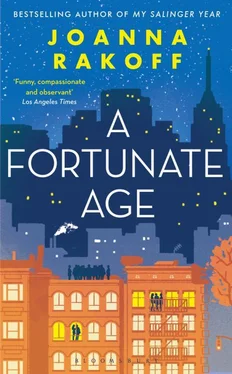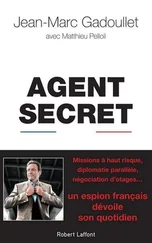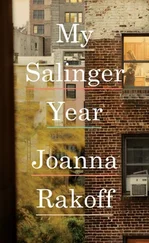“Oh, baby,” Sadie cried, as she struggled to unlatch the straps of the stroller. “You’re so tired. My poor baby. We should have gone home.” Jack in her arms, sobbing in great gulps, she followed Caitlin into a loftlike room of jaw-dropping size. Even Jack seemed stunned by the expanse of the space in which he found himself, for he immediately stopped crying, pointed to a wide floating staircase that presumably led to a second, lower floor, turned his face to Sadie, and said, “Oooooooh!” Large windows lined three walls. In one corner, the makings of a kitchen surrounded a short, whiskered man in paint-covered clothes, wrestling with a piece of wood.
“Hey, Steve,” Caitlin called.
“Hey,” he called back.
“We’re just home for lunch. We won’t get in your way.”
Steve laughed. “I’m starving,” he shouted. “What are we having?”
Caitlin shot Sadie a panicked look. “Well, actually, we’re just going to have coffee, but Meera can find you something.”
He laughed again. “I’m playing with you,” he said, and returned to the obstinate slat of wood.
In another corner sat a long, rustic table, lined with austere metal chairs, and overhung with three small crystal chandeliers all in a row, the spindly, deconstructed sort they sold at ABC. On the far side of the staircase, south of the kitchen, two long, spare sofas faced each other. A pelt of some sort lay between them, cow or gazelle or perhaps some unidentifiable Western sort of beast. Near its head—or where its head would have been—a sole, uncomfortable-looking chair, seemingly made of twigs, presided over the room with a certain hauteur, as if daring anyone to sit on it. The rest of the space was bare, as were the windows. And the floor was not oak plank, like all the other apartments in the building, but a flat, uniform red. “Colored concrete,” Caitlin told her. “It’s the ‘latest thing.’” She smirked, so Sadie might understand that she didn’t care at all—of course—about the latest thing in interior design, but was, rather, making fun of herself for installing a trendy floor. “People are using it for kitchen counters, mostly, but our architect convinced us to do the floor. It was a fortune. I can’t believe we did it.”
“Down, down,” said Jack, and ran off the minute his feet touched the ground, with which he seemed to be transfixed. He stared down at it, turning in circles, and trying to catch the eye of Steve, who was affixing a hinge to a cabinet door. From the bowels of the apartment came, quickly, the sound of flip-flopping sandals, followed by the emergence from the lower level of a dark, glossy, bowed head and a slender body, encased in faded jeans and a gauzy cotton tunic of the palest aqua.
“Hey,” Caitlin said to the woman, who was very pretty, with large, dark eyes and a small, dimpled chin. Her thick black hair fell past her shoulders in heavy waves. “We’re back.” She gestured to Sadie. “This is my friend Sadie”—without meaning to, Sadie flinched at this description—“and her son, Jack. Do we have something for him to eat for lunch?”
“Sure,” said the woman, with almost off-putting grace. “Meera,” she said to Sadie, holding out a neatly made hand, which Sadie took in her own.
“Hi,” she said. “Jack will eat anything, really. And if it’s any trouble, we can—”
“It’s no trouble at all,” said Meera. With one swift move, she lifted Ismael out of his stroller and onto her shoulder, where his fat cheek slouched against the soft fabric of her shirt. “Come, Jack,” she said, “do you want to help me put the baby in his crib? Then we’ll have some nice stew?”
“Yes!” Jack cried, clambering down the stairs alongside her. “Baby!”
“So,” said Caitlin, spreading her arms widely. “Grand tour. This is the upstairs. The kitchen, you can see, isn’t completely functioning yet. We can go downstairs and have some coffee.”
“Great,” said Sadie, following her down the stairs, just as Jack trailed Meera up them, whispering “baby” and “sleep” to her as he passed. The lower floor was as close and cluttered as the first was spare and empty: a replica of a 1970s-style rec room, with two ship-sized couches, slunk low to the ground and clad in orange velveteen, a white woolen shag rug, built-in Danish-modern cabinets lined with books and CDs. One held a nook with a small bar sink, a drip coffeemaker, an electric kettle, and shelves of mugs, brandy glasses, and highballs. At the center of another was a large door, which she presumed hid a television. Caitlin, she thought, was the sort of person who would buy the largest television possible—then hide it. The room, long and narrow, divided in half by the staircase, and lined with doors that presumably led to bedrooms, was much less sunny than the great room upstairs, but far more cozy, and Caitlin seemed to relax once installed on an orange couch. Suddenly, Sadie felt sorry for her, padding around on her cold concrete floors. “Osman’s a programmer?” she said, for lack of any other subject.
“Yeah,” Caitlin told her, filling the coffeepot with water. “Back in, like, ’95 he started this company with his friend Sal. He went to Reed. Everyone was doing things like that out there.” From the refrigerator, she extracted a small brown bag of ground coffee and haphazardly dumped some into the filter. “No one I knew had even heard of the Internet.” Sadie nodded. It was true. In 1995, all her friends had been in grad school or trying to be actors or writers or painters or directors. She’d worked in an office—a professional office, with fifty-plus employees—without a single computer, typing letters on an IBM Selectric. How strange all that seemed now.
“They developed these message-board-type things. You know, the software that makes them work. Eventually, Yahoo! bought the company for I don’t know how much.” She widened her eyes. “A lot .”
“Hmmm,” said Sadie. If it was that much , she wondered, then why does he have a job? But then, who knew? Maybe he’d lost it all in 2001. Maybe he liked to work.
“Sit,” Caitlin instructed, as if she’d suddenly remembered that Sadie was there, that she wasn’t just talking aloud to herself. She kicked off her sandals, grabbed a stray pencil from the bookshelf, twisted her hair into a knot, and settled back down on the couch. Obediently, Sadie seated herself on the opposite couch. “Do you mind if I smoke?” Caitlin asked.
“No, of course not,” said Sadie, though she did.
“Good.” Caitlin grinned. “That’s one of the things about South Asians. They smoke their lungs out and drink like fiends. Americans are so puritanical. People give me the worst looks when I’m out with Ismael and I light up. I want to say to them, Give me a break. I smoke like one cigarette a day .” From the bookshelf above her head she extracted a yellow packet of American Spirits, pulled a cigarette out, lit it with a kitchen match, and inhaled deeply. The coffee machine let out a deep burble.
“Shall I pour?” Sadie asked, gratefully rising from the couch.
“Would you? That would be great.”
The coffee, Sadie could see, was too weak—an amber color, almost like tea.
“Is it okay?” Caitlin called.
“Yes, fine,” Sadie lied, pouring the stuff into two of the little mugs.
“It’s good coffee, so you can drink it black,” Caitlin informed her.
“Great,” said Sadie, and passed her a mug.
“So where did you deliver?” Caitlin asked.
Sadie had been waiting for this question. Normally, when she met new mothers, this was the first thing they wanted to talk about. “Roosevelt.”
“New York Hospital,” Caitlin told her. “How was Roosevelt? I almost went there. I wanted to do the Birthing Center, at first.”
Читать дальше












